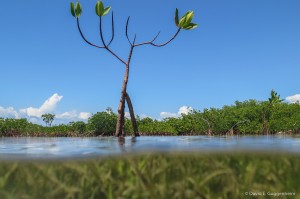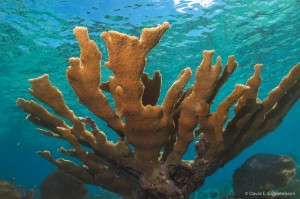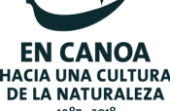What Will the Future Hold for Cuba & Their Sustainability Practices?

Healthy sea grasses and mangroves, like these in Cuba’s largest marine protected area, are essential nursery areas for coral reef ecosystems. Photo: David E. Guggenheim
A partnership of three U.S. foundations, Cross Cultural Journeys Foundation, Ocean Doctor, and The Baum Foundation launched the first-of-its-kind People to People expedition to Cuba today designed to investigate Cuba’s leading examples in conservation and sustainable practices. Trip leaders will explore Cuba’s exceptionally healthy and vibrant ecosystems on both land and sea. The trip will be led by Dr. David E. Guggenheim, founder and president of Ocean Doctor, who has been leading marine research and conservation efforts in Cuba for the past 15 years working in close collaboration with Cuban colleagues. The expedition includes a mix of scientists, intercultural experts, journalists and U.S. citizens.
The three foundations designed the trip to explore the history, culture and sustainable practices of Cuba through meetings with researchers, university officials, organizations, and local people. They hope to bring back stories and practices they can share with the U.S. and others about what they learned in discussions and site visits focused on ecological and environmental values. Trip organizers will also explore the uncertain future of Cuba’s environment in light of the long-awaited historic announcement on December 17, 2014 by Presidents Obama and Raúl Castro to normalize diplomatic relations. “There are growing concerns” says Dr. Guggenheim, “that ironically, the U.S. may become a greater threat to the country as its friend than it ever was as its enemy, spurring rapid, unsustainable growth in Cuba, threatening its remarkably healthy ecosystems.”

Healthy elkhorn coral (Acropora palmata) is now 95 percent extinct in the Caribbean but still thrives in Cuba’s waters. The pictured stand is part of a barrier reef of elkhorn coral that stretches 30 miles. Photo: David E. Guggenheim
Due to its unique political history and strong environmental policies, Cuba has developed differently than any other country in Latin America and the Caribbean. When the Soviet Union collapsed in 1991, Cuba lost its oil supply. Without petroleum for transportation, agriculture and manufacturing, Cuba’s economy shrank by 30% in one year and famine loomed. To feed its people and rebuild its economy, Cuba had to adapt rapidly, developing novel ways to survive on less. Cuba’s natural environment benefited as its forests, reefs and coastal wetlands thrived in the absence of chemical pollution. A 2014 study found that coral cover across the Caribbean has declined by 50 percent since 1970 while Cuba’s coral reefs have remained remarkably healthy. Today, many of Cuba’s environmental practices can provide models for how other countries can adapt to challenges like global warming, resource depletion, and species extinction.
“Cuba’s experience is unique in so many ways because of the transition from the Soviet era and the U.S. embargo. While Cubans have suffered economically, they have developed unique ways to survive and thrive with a much smaller ecological footprint than their neighbors to the north,” said Leif Utne, President of the Cross Cultural Journeys Foundation. As the embargo eases and resources flood in, Cubans may be tempted to abandon many of these practices. “Our people-to people trip is traveling their to listen, understand and further explore ways that Americans can both learn from the Cubans and help them as they feel they need it, to avoid the environmental degradation that often follows when poor countries begin to develop rapidly,” says Utne.
This trip, organized by the three foundations who share a mission to conserve and preserve culture, the environment and improve the human condition, is just the first in the series of trips planned with the theme of “How Cuba Went Green and What the Future Holds.” Future trips are planned for March 31 – April 9, 2016 and December 1 – 10, 2016.
vvlx,
hentai,
xporn,
xnxx,
sex việt,
Family Practice Doctors Near Me,
Ratify Treaties,
Best Hookup Apps,
Brunch On A Wednesday,
Comfortzone,
Plaza Premium Lounge Orlando Reviews,
Catering 77002,
Cauliflower And Coconut Curry,
Usa Rail Pass,
Active Duty Service Member,
Patch American Flag,
Farfetch Coupon Code,
Connect Google Mini,
Nike Mens High Top,
Bronny James Usc Basketball,
Anal Sex Prep,
Aesports,
Check Balance On Debit Card,
Add People Trustpilot,
Skype Ids,
← Artist Jaimie Warren Community Collaboration Performance Art Opening




